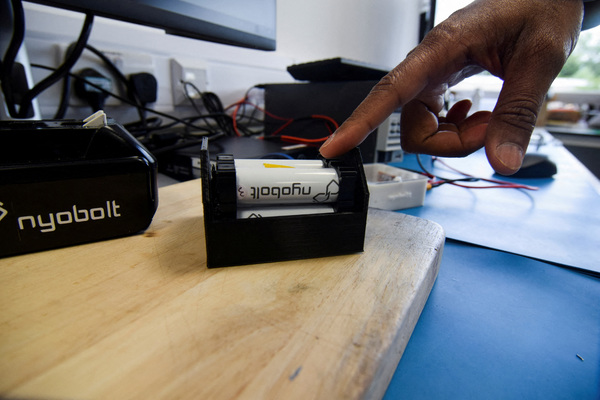Mitigating UK connectivity outages

Alan Stewart-Brown at Opengear explores a critical issue and suggests some solutions
Recent figures from Vorboss reveal that fixed business connectivity outages have cost the UK economy £17.6 billion in the past year, with nearly one-fifth of organisations with a business internet contract experiencing at least three outages.
This points to a significant weakness in our national infrastructure, not just impacting business continuity but affecting wider economic recovery and growth.
Nearly all business operations rely on digital connectivity, making any disruption highly detrimental. The retail sector, for instance, depends on point of sale (PoS) systems to process transactions. An outage can halt sales, frustrate customers, and erode trust.
Similarly, in financial services, real-time data transactions are crucial. Any disruption here can lead to financial losses, legal issues, and regulatory complications. Healthcare, another critical sector, relies on uninterrupted connectivity to ensure patient care, timely medical procedures, and the protection of sensitive health data.
Long-term consequences
Whatever the specific use case, the immediate financial impact of connectivity outages tends to be severe, but the hidden costs can be even more damaging. Downtime disrupts daily operations, resulting in lost productivity, decreased customer satisfaction, and increased employee turnover.
Businesses perceived as unreliable due to frequent outages may find it challenging to retain existing customers and attract new ones, diminishing their competitive edge. Over time, these companies might face declining market shares and reduced investor confidence.
Without robust network resilience strategies, businesses are at a higher risk of prolonged outages, which can cripple operations, delay projects, and reduce overall productivity. The financial implications of these disruptions quickly add up, impacting the bottom line and hindering growth.
Therefore, it’s essential for businesses to invest in advanced network management tools and technologies to safeguard their operations against these connectivity challenges.
Maintaining business continuity
To address these connectivity issues, businesses are increasingly adopting innovative network technologies. One such solution is Smart Out-of-Band (OOB) Management. This technology provides a secondary path for accessing and managing network devices when the primary network is down, ensuring continuous operation. IT staff can diagnose and resolve issues remotely, reducing Mean Time to Repair (MTTR).
This is particularly beneficial for large organisations with multiple sites, as it centralises network control and minimises the need for physical presence to resolve issues.
Another effective solution is integrating cellular failover into network infrastructure. This maintains critical functions during an outage. Combining out-of-band management with 4G LTE failover offers a reliable backup connection, keeping essential services running. In the retail context, PoS systems can continue processing transactions, minimising disruption and maintaining customer satisfaction.
For sectors like logistics and transportation, cellular failover ensures continuous tracking and management of shipments, preventing costly delays and inefficiencies.
Additionally, businesses should consider regular network audits and stress testing to identify and address potential vulnerabilities before they lead to outages. Proactive measures like these can significantly reduce downtime, maintain business continuity, and protect against the financial and reputational costs associated with network outages.
Embracing advanced technologies
The adoption of advanced technologies is essential to building more resilient business networks. Investing in Smart OOB management and cellular failover capabilities helps organisations navigate fixed connectivity outages by providing a safety net that keeps networks operational, ultimately enabling the businesses to continue functioning smoothly.
Beyond this, businesses must also stay abreast of emerging technologies that can further enhance network resilience. As digital connectivity becomes increasingly integral to business operations, the importance of robust network infrastructure cannot be overstated
Economic losses caused by connectivity issues are rising, highlighting the need for businesses to prioritise network resilience. Those that do so will be better positioned to thrive in an increasingly digital and interconnected world, and turn potential vulnerabilities into opportunities for improvement and innovation.
Alan Stewart-Brown is VP EMEA at Opengear
Main image courtesy of iStockPhoto.com and mesh cube

Business Reporter Team
Related Articles
Most Viewed
Winston House, 3rd Floor, Units 306-309, 2-4 Dollis Park, London, N3 1HF
23-29 Hendon Lane, London, N3 1RT
020 8349 4363
© 2025, Lyonsdown Limited. Business Reporter® is a registered trademark of Lyonsdown Ltd. VAT registration number: 830519543





